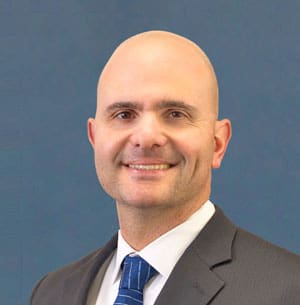
IRS Issues Proposed Regulations on New Tax Code Section 199A
Internal Revenue Code Section 199A is a particular tax code section which was enacted on December 22, 2017 that allows for a twenty percent (20%) deduction of a tax payer’s income from domestic businesses that are taxed as a sole proprietorship S-Corporation or partnership. On April 8, 2018, the IRS issued proposed regulations on Tax Code Section 199A. The proposed IRS regulations for Tax Code Section 199A that were just released provide additional guidance on the application of this code section.
Some of the highlights of the proposed regulations for Tax Code Section 199A are as follows:
 The Section 199A proposed regulations provide additional guidance with regards to the calculation of the 20% deduction and the calculation of qualified business income.
The Section 199A proposed regulations provide additional guidance with regards to the calculation of the 20% deduction and the calculation of qualified business income.- The Section 199A proposed regulations define the application of “reasonable compensation” in stating that it will continue to apply to only S-Corporations and that term’s application with not be applied to partnerships.
- The Section 199A proposed regulations provide significant guidance with regards to a Specified Service Trade or Business (SSTB). These are business such as the practice of law, healthcare, accounting, engineering, actuarial services consulting, athletics, financial services, brokerage services or any service where the business is based upon the reputation or skill of one or more of its employees.
- Consulting’s definition pursuant to the The Section 199A proposed regulations is “professional advice and counsel to clients to assist the client in achieving goals and solving problems”.
- The Section 199A proposed regulations also clump together activities by providing an example with regards to athletics. Not only will the athlete be considered as a SSTB, but the owners of the teams will also be considered an athlete for this purpose
- The Section 199A proposed regulations also tackle several planning techniques that were proposed to the IRS based upon SSTB. In most cases the IRS has determined that many of the planning techniques will not qualify; therefore, making it more difficult to plan for those who are SSTB.
While the Section 199A proposed regulations are not final, it is unlikely that numerous changes will occur that will modify the rules to assist taxpayers. Now that the proposed regulations are out we can properly assist our clients in planning and determining their best business structure.
Robb Longman was recently sought by Tax Analysts for his advice regarding the IRS’s Section 199A proposed regulations. The Tax Analysts article, titled “Proposed 199A Regs Clarify, Narrow Excluded Services” states:
While that definition adopts a narrower approach by identifying what is included and excluded, the range of consulting services still seems broad, Robb A. Longman of Longman & Van Grack LLC said, noting that those services include providing clients professional advice and counsel to assist them in achieving goals and solving problems. The IRS, however, is willing to look at each taxpayer’s case and assess eligibility for section 199A based on the facts and circumstances surrounding the business, Longman said.
 Robb Longman, who is the Chair of the Firm’s Tax Practice, regularly assists clients in all types of tax law matters and has testified before state legislature regarding tax policy. Mr. Longman currently serves Assistant Secretary of the American Bar Association (“ABA”)’s Section of Taxation, is a fellow of American College of Tax Counsel, and is the former Chair of the Maryland State Bar Association’s Taxation Section. Mr. Longman has been practicing all types of tax law for nearly sixteen years, not including his time as a student attorney at the University of Baltimore School of Law. Mr. Longman currently provides services to tax clients at Longman & Van Grack including representing his clients for individual and business tax planning as well as working with his clients to resolve disputes with the Internal Revenue Service, Comptroller of Maryland and other state taxing agencies. You can reach Robb directly at (301) 291-5027.
Robb Longman, who is the Chair of the Firm’s Tax Practice, regularly assists clients in all types of tax law matters and has testified before state legislature regarding tax policy. Mr. Longman currently serves Assistant Secretary of the American Bar Association (“ABA”)’s Section of Taxation, is a fellow of American College of Tax Counsel, and is the former Chair of the Maryland State Bar Association’s Taxation Section. Mr. Longman has been practicing all types of tax law for nearly sixteen years, not including his time as a student attorney at the University of Baltimore School of Law. Mr. Longman currently provides services to tax clients at Longman & Van Grack including representing his clients for individual and business tax planning as well as working with his clients to resolve disputes with the Internal Revenue Service, Comptroller of Maryland and other state taxing agencies. You can reach Robb directly at (301) 291-5027.
